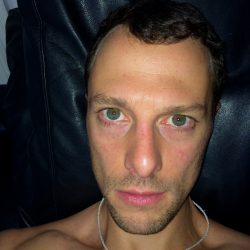
RALF DEREICH
...Page is loading...
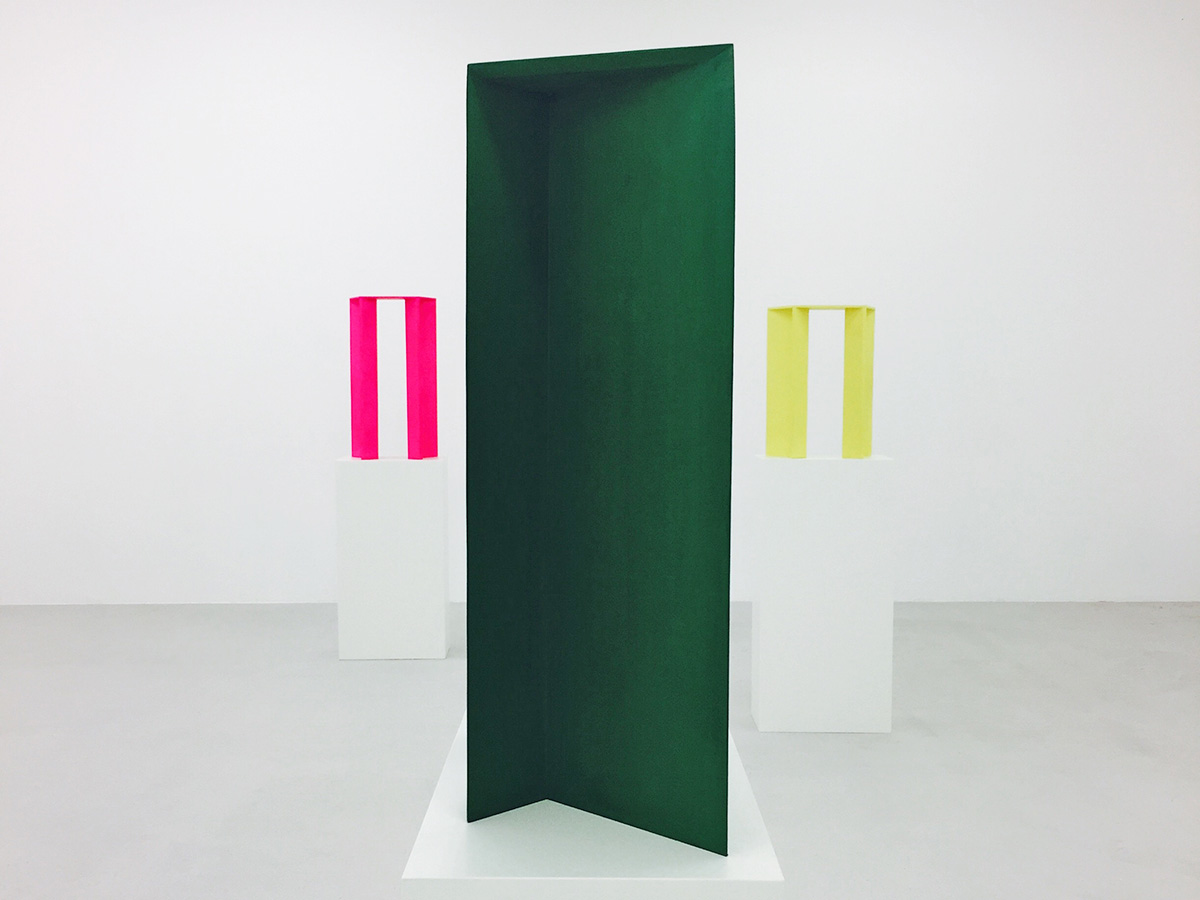
@ Sully Balmassière
Berlin, Germany
Published 05/07/2014 | Updated 28/02/2019
Madeleine Boschan is a deliberate and wilful protagonist of a new generation of artists who, in recent years, have
subjected abstract sculpture to a critical actualisation. By reinstating the social dimension of a merely formalist approach
she bestows contemporary aptitude and relevance upon it, once more.
Vantage point of her work is the assumption that every kind of spatial experience is a foremost physical experience:
Madeleine Boschan is a deliberate and wilful protagonist of a new generation of artists who, in recent years, have
subjected abstract sculpture to a critical actualisation. By reinstating the social dimension of a merely formalist approach
she bestows contemporary aptitude and relevance upon it, once more.
Vantage point of her work is the assumption that every kind of spatial experience is a foremost physical experience:
how does a body gain its halt and stand, how does it find its appropriate place and holds up this position, how does it
interact with other bodies?
In the process, she is affected by the Indigenous African or Oceanic sculpture, by behavioural biology, Situationism,
science fiction, and, in recent years, by literature; be it Samuel Beckett’s poetics of space or, the tension
between precise everyday observations and most subjectively felt self-expression in the oeuvre of American poet
Frank O’Hara and just lately, the "Neue Gedichte" by Rainer Maria Rilke.
Always in an enquiring regard: what and ›how‹ are the places of man? For her practice, the sculptural formation of
space, does not only address merely aesthetic questions but consistently individual, social, and ethical ones – Roland
Barthes’ final enquiry: Comment vivre ensemble? How to live together?
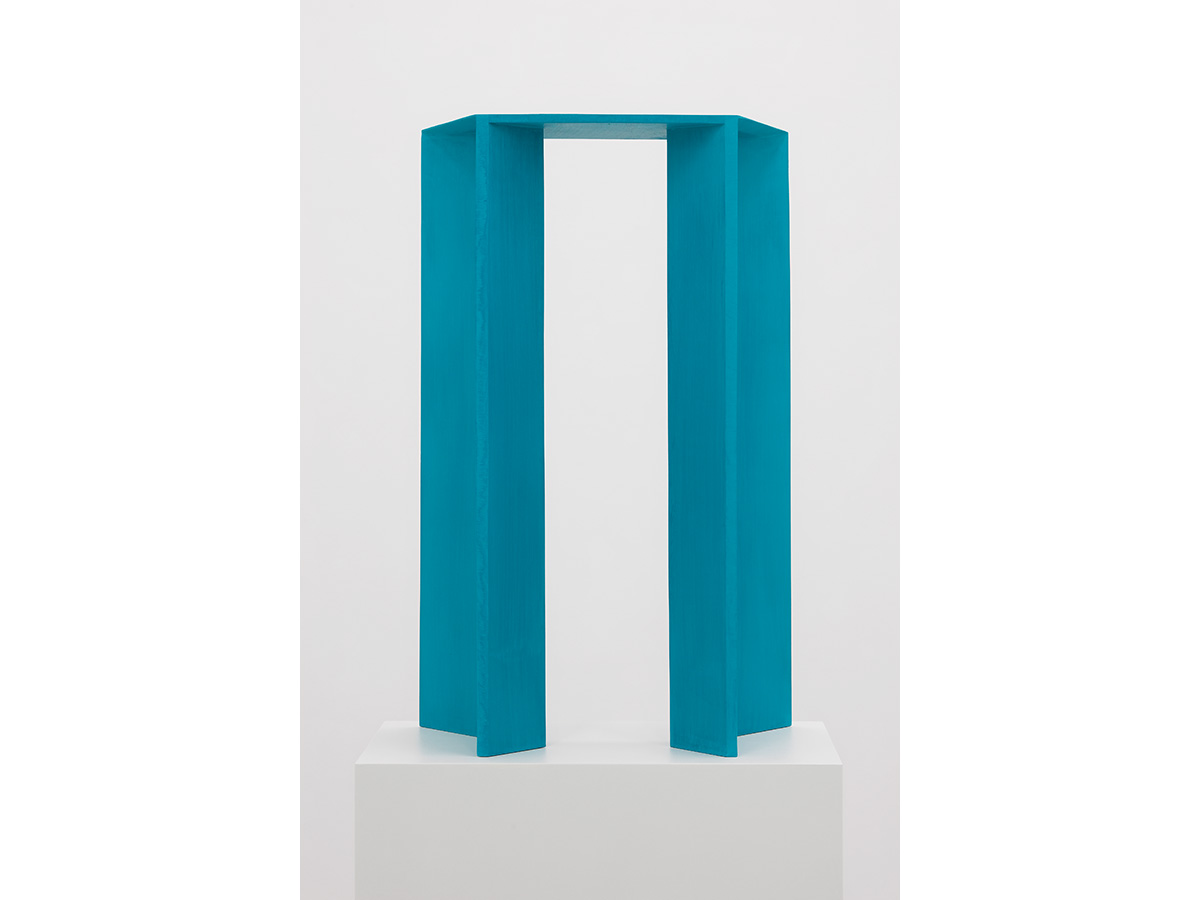
une écriture corporelle (menthe), 2017 // Dispersion, plywood, pigment, champagne chalk, egg tempera // 71 x 50 x 26.5 cm
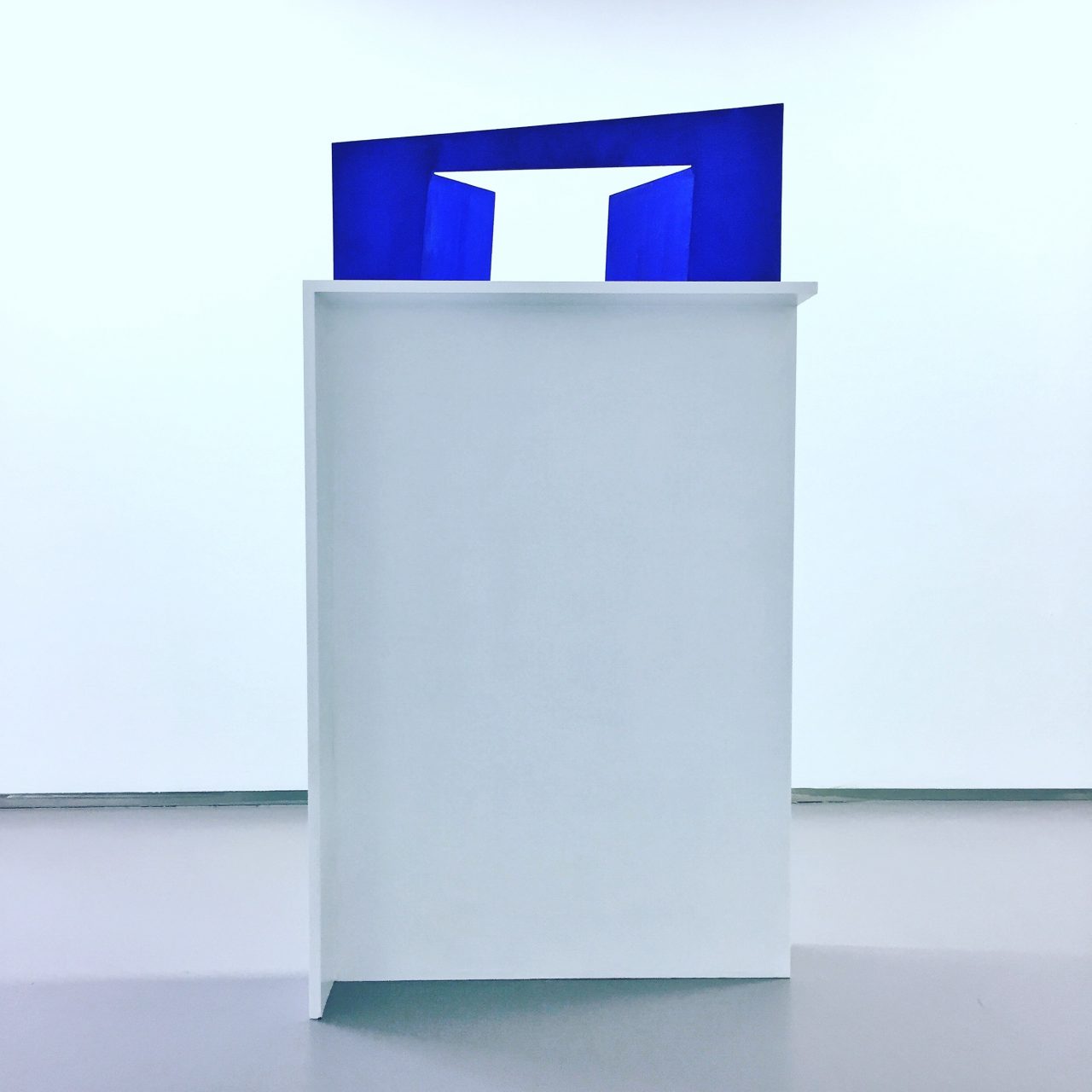
Cet imperceptible échange qui nous fait frémir | 2017 | champagne chalk, eggtempera, pigments, plywood
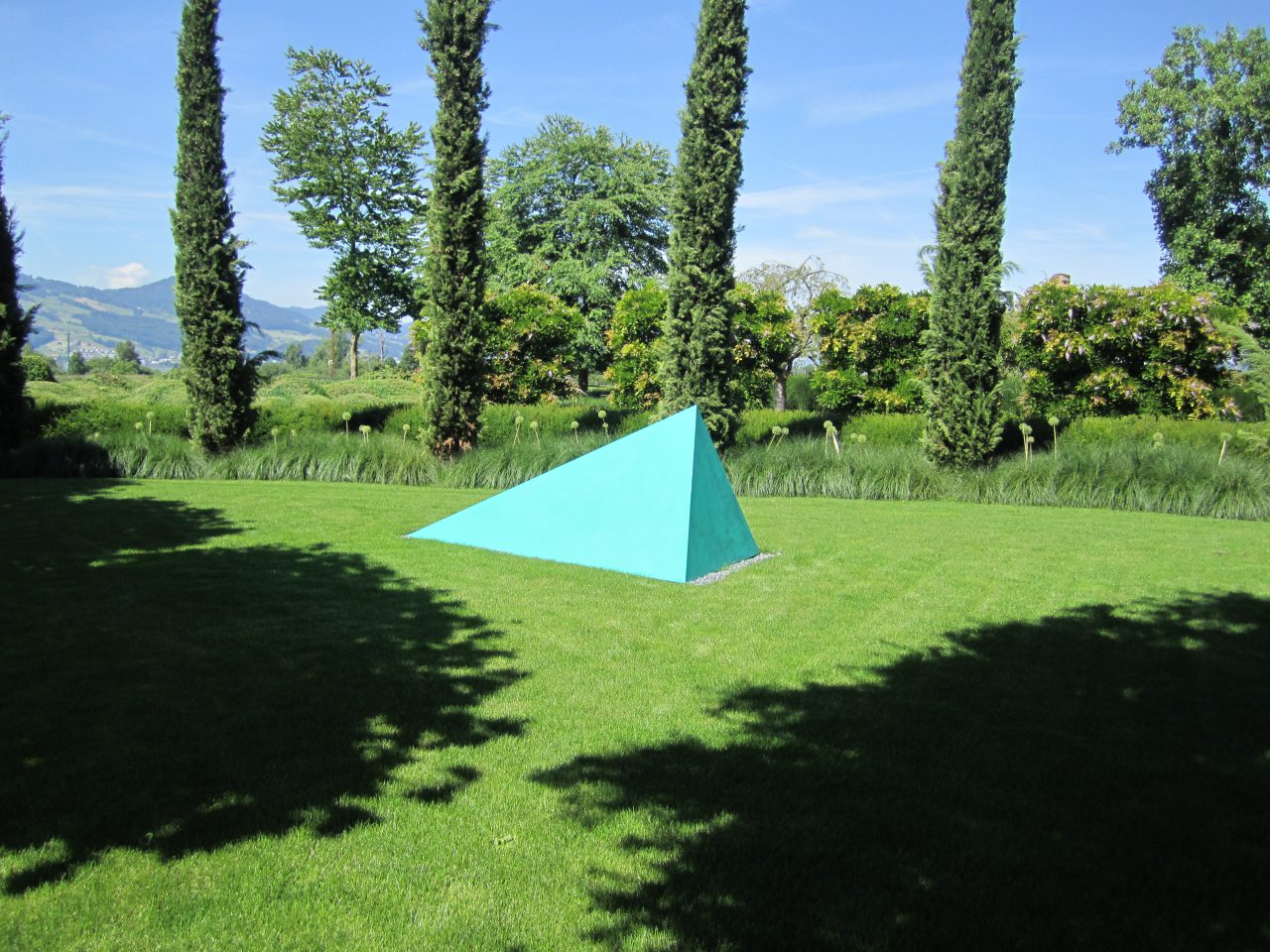
Comment vivre ensemble | 2015 | coated aluminium, spruce 120 x 310 x 140 cm exhibition views, Enea Tree Museum, Rapperwil–Jona, Switzerland
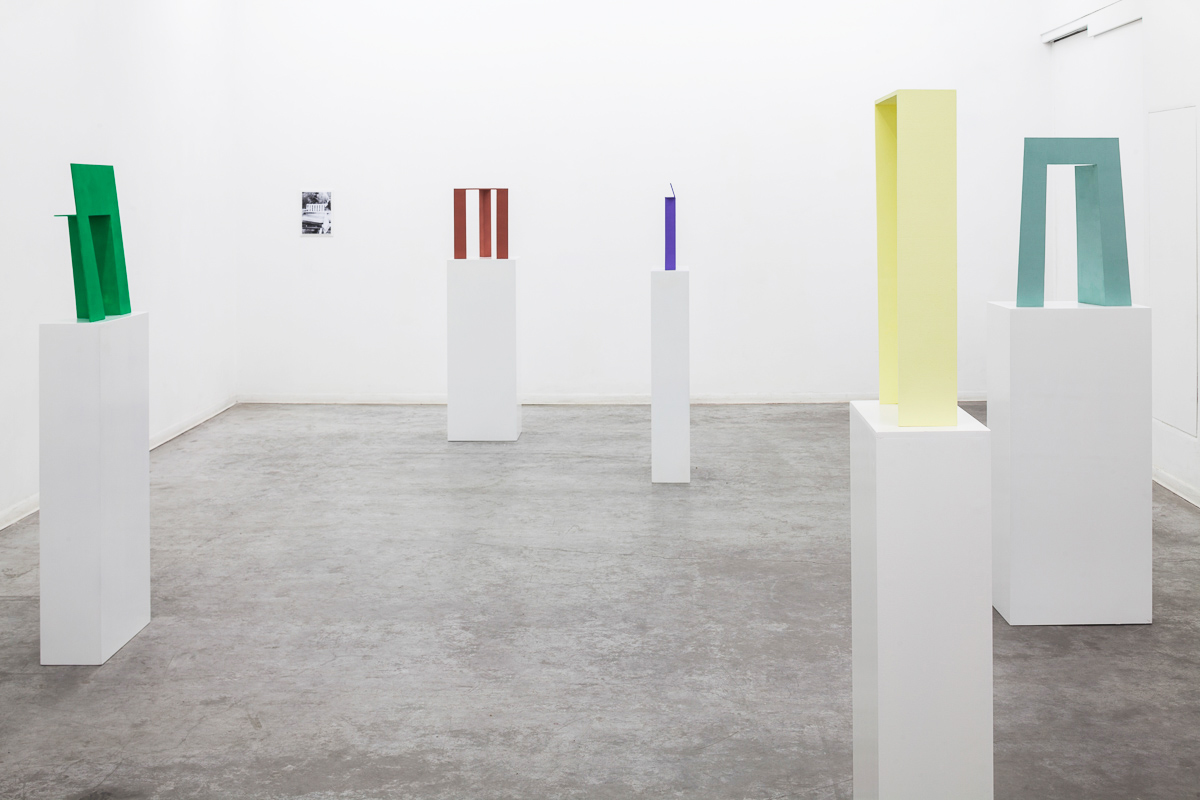
in which its gaze, bent merely on itself, upholds and gleams 2016 exhibition view @ Hezi Cohen Gallery, Tel Aviv-Jaffa, Israel
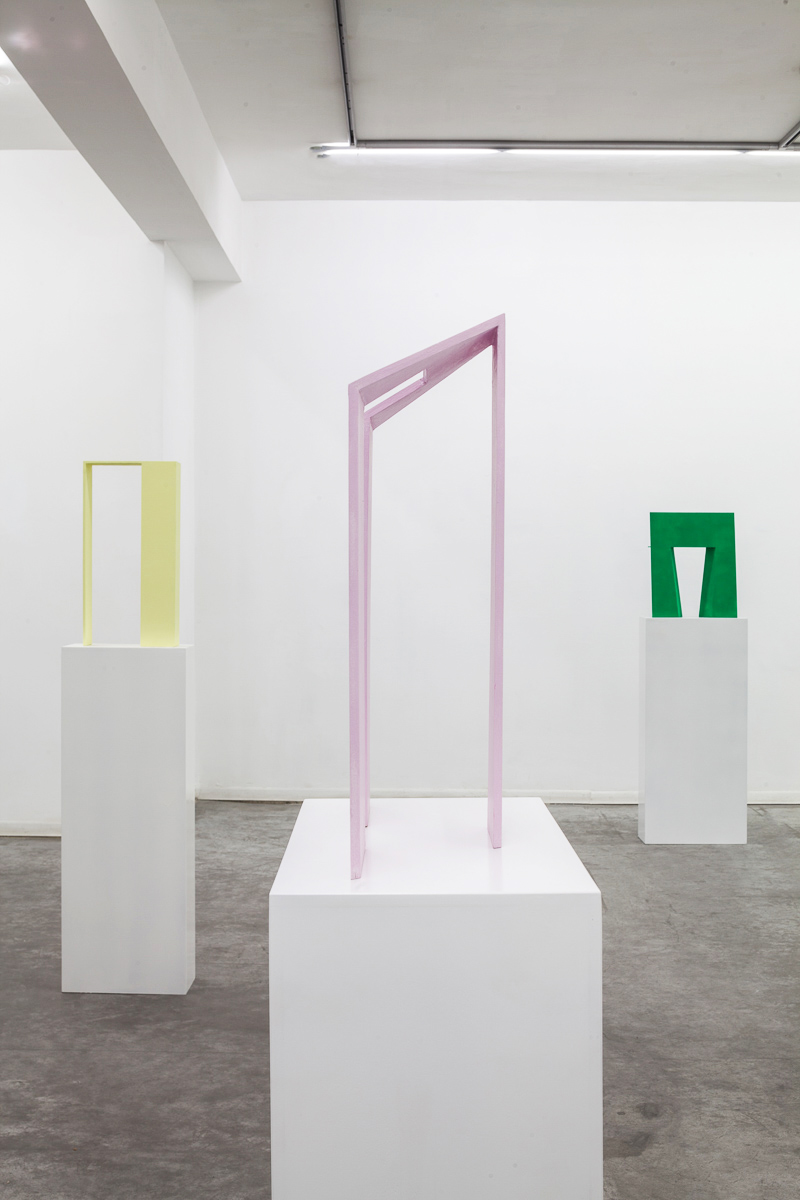
in which its gaze, bent merely on itself, upholds and gleams 2016 exhibition view @ Hezi Cohen Gallery, Tel Aviv-Jaffa, Israel
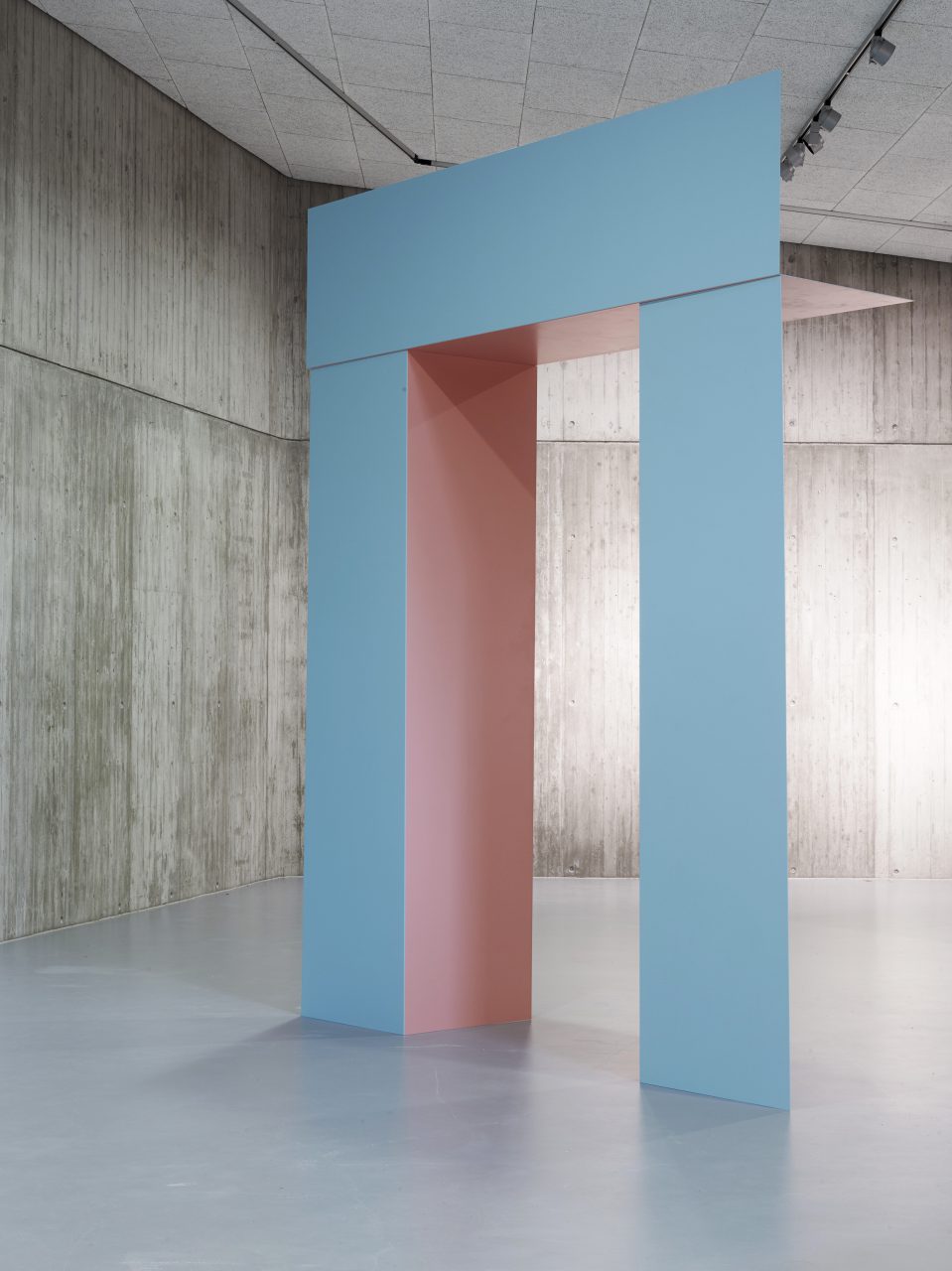
Turning a disc and, in turn, being turned as well (light blue and salmon) 2015, coated aluminium, 375 x 300 x 75 cm
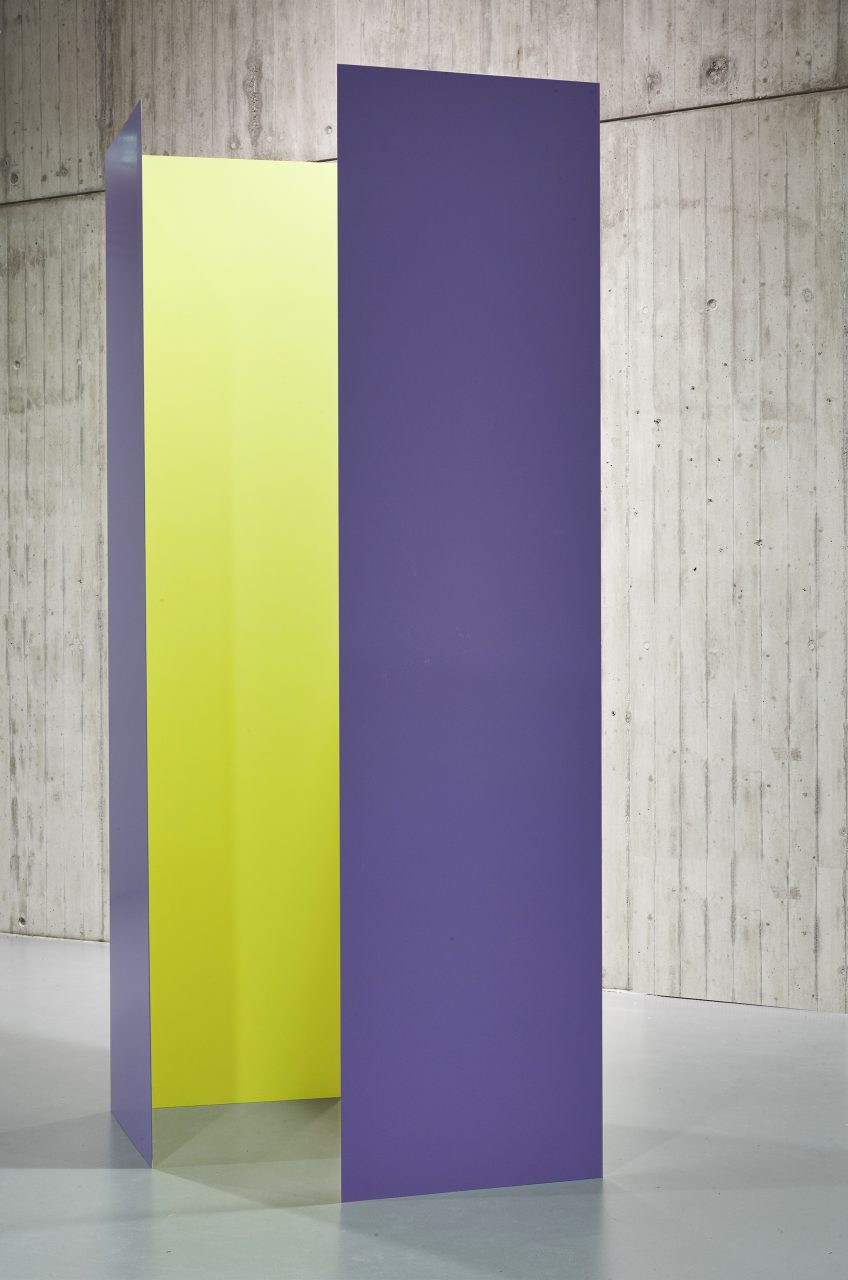
Turning a disc and, in turn, being turned as well (lilac and light yellow), 2015, coated aluminium, 300 x 168 x 107 cm
What is it about your studio space that inspires you?
That it´s my studio space.
What sounds, scents and sights do you encounter while in your studio?
I listen to a lot of stuff, all sorts of things keep coming out of this little box ... but for the most part, I work in silence.
What is your favourite material to work with? How has your use of it evolved throughout your practice?
Metal and measuring tools
What themes do you pursue?
Probably ethology and behavioral biology, questions related to the origins of social exchange and the construction of ritualized social orders as well as their dystopic collapse. I strive to make perceptible the interconnectedness, the simulated and the doubtable of today‘s post-industrial societies ...
What advice has had the biggest impact on your career?
You know, my father was an inventor. He was able to find solutions for problems of various kinds, in the fields of electrical engineering, and so forth. He told me that if someone says ›can’t‹ this shows you what to do, that there are no given things, instead, you’ve got to invent them. He also told me that my mother was always right even when she was wrong. So, I am rather brutal than indifferent. Some artists prefer a stream of consciousness. Not me. I beat people up.
If you could install your art absolutely anywhere, where would that be?
The sculptures bring about their own places.
If you could only have one piece of art in your life, what would it be?
A Katana
If you weren´t an artist, what would you be doing?
If I couldn’t build sculptures, I think I would be quite a problem. I’d definitely be a pain in the arse to the people who have to put up with me. I just wouldn’t know what to do with myself. Or maybe not, perhaps I’d be turning a disc and, in turn, being turned as well, I guess, making the best of it, having a future in British steel, or watching the tide at the Belgian shore, some sort of silly thing like that. But no, obviously, I’m not perfect but the thing I seem to be best at is sculpture.
What are your favourite places besides your studio?
A forest, possibly.
2019
Tutlips and chimneys
GALERIE BEND KUGLER, Innsbruck | www.berndkugler.at
Hezi Cohen Gallery, Tel Aviv | http://www.hezicohengallery.com/
Galerie Lange+Pult, Zurich | http://www.langepult.com/default.asp